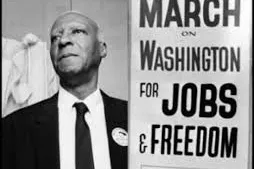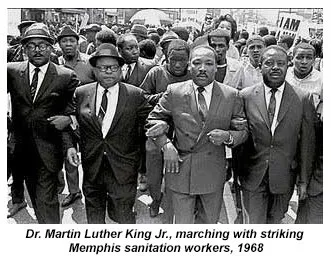Demo Basic Page

A. Philip Randolph was a labor organizer and one of the most influential political strategists of the twentieth century. His belief in organized labor’s ability to counter workforce discrimination and his skill in planning non-violent protests helped gain employment advancements for African Americans.

In 1925, Randolph founded the Brotherhood of Sleeping Car Porters (BSCP). Randolph secured membership in the American Federation of Labor for the BSCP, making it the first black labor union in the United States. Building upon his efforts with organized labor, Randolph collaborated with Bayard Rustin to develop non-violent strategies to protest discrimination in the defense industries and armed forces. In 1941, they planned a march on Washington, DC to protest discrimination in the defense industry. The proposed march pressured President Franklin D. Roosevelt to issue an Executive Order abolishing discrimination in the defense industry. In 1947, Randolph planned another march on Washington to protest segregation in the military. Once again, the proposed march placed political pressure on the government, and in 1948 President Harry S Truman issued an Executive Order ending segregation in the military.
During the 1950s, Randolph taught other civil rights leaders how to utilize non-violent protests to oppose racial discrimination. Randolph was a principal organizer for the 1963 March on Washington and was among the leaders that met with President John F. Kennedy after the march. In 1964, Randolph received the Presidential Medal of Freedom for his efforts and founded the A. Philip Randolph Institute in Washington, D.C., an organization aimed at studying poverty.
